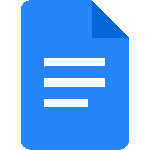You’ve made it here, which means you’ve reached at least one conclusion: It’s time to issue an RFP for marketing services. Congrats! That’s no small feat. You’re ready to make a real investment in tactics that will expand your visibility and ultimately grow your business. Now comes the hard part–Picking the right B2B marketing partner. The process isn’t just daunting. It carries real weight for the success of your business, and there’s no foolproof method for ensuring you find a perfect match on the first try.
However, there is a method that saves you time and provides agencies with the clearest possible picture of what you need–no meeting required. Submit an RFP! It is one of the most effective and common ways to source an agency partner.
We receive RFPs. Constantly. The good ones can lead to long-lasting, fruitful relationships. The bad ones just waste everyone’s time. So, we want to do you a favor and give you tips on how to build a great one.
But we won’t stop there. We’ve already built you a great one. (Here’s where we confess that the best RFPs save us time, too, so we aren’t just doing this because we are nice—though we also are that.)
You can use one of our marketing RFP templates right now, or instantly generate a ready-to-send version with our AI-powered RFP creator. But keep reading to learn what we want, why we want it, and how a well-crafted RFP will lead you to a powerhouse marketing partnership.

How to Write the Perfect Marketing RFP
What is an RFP?
Starting with the basics, RFP stands for “Request for Proposal.” Think of it like a nudge to a marketing agency, signaling that you need help and that you already have budget allocated for that help. When an agency receives an RFP, they’ll screen it first to ensure they can meet your needs. Every agency may not respond, whether because the project isn’t within their area of expertise, it doesn’t meet their budget requirements, or they aren’t taking on new work.
Those who do will return with a fully baked proposal outlining their cost structure, scope of work, timing, and a deeper look at their agency culture and approach. You’ll then have the opportunity to review the batch of submissions and whittle down the candidates to your favorites. You will likely then schedule meetings with the two or three finalists before making your decision.
Why Should You Send an RFP?
Simple: The process helps find the best agency for you by asking a lot of agencies the same questions at the same time in the same timeframe. Think of it like an incredibly efficient way to date. You’re changing your relationship status on social media to single, then telling everyone the qualities you hope to find in your next significant other.
RFPs work best when:
- You have a specific project or marketing need in mind. Project examples that merit an RFP include:
- Building a new website
- Rebranding
- Launching a new product
- Launching a new company
- The project is large in scope.
- You already know your budget.
You should not send one if:
- You don’t have specific marketing needs in mind.
- You don’t have a specific timeline for a project.
- You aren’t sure about your budget, or a decision maker at your company has not fully approved an agency partnership.
It’s worth noting that RFPs aren’t the only way to source a marketing agency. Most–including us–love hopping on a quick discovery call. That’s especially true if you’ve already vetted the agency and simply want to learn more. If you prefer to get directly in touch with us, we can save you some reading. Feel free to reach out right now.
How Should You Send an RFP?
An email to someone on the agency’s business development team works best. For us, you can send it here.
Attach your RFP as a readable document (like a PDF or Word doc) to the email. Make sure you include the submission deadline somewhere prominent (like the email body and at the top of the actual RFP document).
When you’re ready to build your RFP, start from our template. We’ve already done 90% of the work for you.
7 Questions Every RFP Needs to Answer
We’re in marketing, so we aren’t shy. But we’re certain you won’t want us hounding your inbox with follow-up questions after you send the RFP. When we comb through the document for the first time, we’re hoping you’ve answered these 6 questions. They’ll give us the best chance to put together an outstanding proposal and save you from some common follow-ups.
As you craft the RFP, make sure you ask yourself–and then fully answer–each one.
1. Who are We?
This, of course, includes the basics: Your company name, location, website link, contact information etc. But more importantly, it should give us a sense of your company’s identity. What are your mission and values? What makes your service and products stand out? What is your (brief) company’s history? On a first date, this is what you’d cover over the appetizer.
2. Why do We Need a Marketing Agency?
You’re reaching out for a reason, and we’d like to know exactly why. Do you have an existing agency that is not serving your needs? Are your current internal resources not capable of completing a new project? Note: This section does not need to go into project specifics yet (you’ll get to that later). It just provides us with more context on your previous marketing history and past agency experience. More specifically, this should provide insight into the problem you’re looking to solve.
For example, your website has experienced consistent declining traffic, thus decreasing the number of leads it generates. Give us, to the best of your ability, your hypothesis as to why that’s happening. Are you operating on an outdated system? Do you infrequently post new content? Your theory doesn’t have to be 100% accurate–a good agency will help dig into the root issues during the initial phase of the partnership–but this better helps us craft a more focused proposal.
3. What Work do We Need?
This is the meat of your proposal, where you lay out the exact scope of work you’d like completed. Don’t just focus on the specifics of “what” you need. Tell us the “why.”
For example, you might be a software company with a name that reflects a specific industry. Now, you’re looking to expand beyond that industry; thus, you want to rebrand with an identity that reflects your growing ambitions. Explain that context, with a clear list of the final assets you hope to receive.
If your project involves upgrades to your technology (like a website re-design or an overhaul to your marketing automation), it’s also crucial to include details on the current tools and services you’re using (we call this your “marketing tech stack”). This helps us understand the resources it will take to implement new services or mold your existing ones to fit your needs.
4. What Does Success Mean?
Give us numbers, hard data, or a clear mission statement on the results you hope this project achieves. “We want a beautiful new website,” is far less useful than “We want a website that grows our new lead pipeline by 10%.”
Clear goals allow an agency to evaluate the project’s feasibility. And it ensures both parties are aligned well before any contract is signed.
5. What is Our Timeline?
We need four key dates, working backward from:
- The project’s completion date
- The project’s start date
- The date by which you will choose the agency
- The deadline to submit the RFP
Note that the project start and finish date can be a range (typically no more than a month), but we prefer a specific idea of when you’ll choose your partner and when the proposal is due.
6. Who are Our Stakeholders?
We’d like to get to know you better! Provide a short bio for each stakeholder. This shouldn’t just include the team that will decide on the agency, but anyone who will provide feedback and approval as the project gets started. If, for example, the agency will need to present before a Board before a proposal is accepted (or during their ongoing work) that should be included here.
7. What is Our Budget?
An accurate number or range is crucial. This helps us determine if we’d be a good fit. It’s critical that your team has already approved (or is nearly approved) this number. Be aware that an agency might suggest slightly increasing or decreasing the final fee pending an agreed-upon scope. But this number is a North Star–something both parties will aim at before taking the next step.
Free Marketing Services RFP Template
You don’t need to start with a blank page! Use one of our ready-made marketing agency RFP templates. Just pick you preferred application below to download or access a fill-in-the-blanks version.
Want to send your RFP faster? We’ve also created a marketing agency RFP builder, which will give you a ready-to-send marketing services RFP in five minutes, flat.




